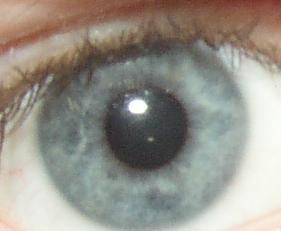Tyndall effect facts for kids

The Tyndall effect is a cool science trick that makes light beams visible! It happens when tiny bits of stuff, like dust or water droplets, scatter light as it passes through them. Imagine a flashlight beam shining through a dusty room – you can see the light path because the dust particles are bouncing the light around.
When light hits these tiny particles, it doesn't just go straight through. Instead, it gets scattered in all directions. This effect is named after an Irish scientist named John Tyndall. He studied how light behaves when it interacts with different materials.
Contents
How Does it Work?
The Tyndall effect shows us that not all colors of light scatter in the same way. Light with longer wavelengths, like red and orange light, tends to pass through more easily. But light with shorter wavelengths, like blue and violet light, gets scattered much more strongly. This means blue light bounces around a lot more than red light when it hits tiny particles.
Where Can You See the Tyndall Effect?
You can see the Tyndall effect all around you!
Blue Sky and Blue Eyes
- Why the sky is blue: The blue color of a clear sky is caused by the Tyndall effect. Sunlight travels through Earth's atmosphere, which is full of tiny air molecules. These molecules scatter the blue light from the sun much more than the other colors. That's why the sky looks blue to us!
- Blue eyes: The blue color of blue eyes is also due to the Tyndall effect, not a blue pigment (color). The front part of the iris (the colored part of your eye) has tiny fibers that scatter blue light.
Light in Forests
You can also see the Tyndall effect when sunlight shines through the leaves in a dense forest. The light beams become visible as they pass through the misty air or dust particles floating in the forest.
Images for kids
See also
 In Spanish: Efecto Tyndall para niños
In Spanish: Efecto Tyndall para niños


